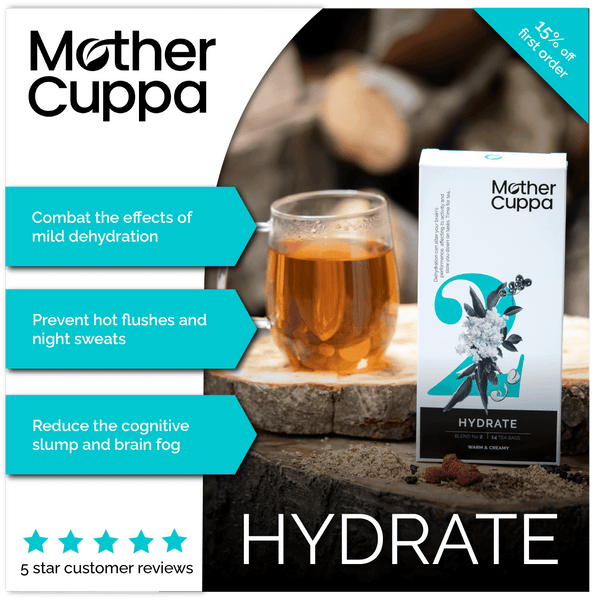Exploring the Healing Properties of Raspberry Leaf Tea

Raspberry leaf tea holds a special place in the world of herbal remedies, especially for women. It's not just another herbal infusion; it's a tonic that has been cherished for generations. Let's delve into the world of raspberry leaf tea and uncover its myriad benefits.
Welcome to the world of herbal wellness, where nature's remedies offer solace and healing. Among these treasures is raspberry leaf tea, a humble yet powerful elixir celebrated for its therapeutic properties, particularly among women.
What is Raspberry Leaf Tea?
Before we dive into its benefits, let's understand what raspberry leaf tea is all about. Raspberry leaf tea is an herbal infusion made from the leaves of the raspberry plant, scientifically known as Rubus idaeus. These leaves are rich in nutrients and compounds that offer a plethora of health benefits.

Raspberry Leaf Tea Benefits
Raspberry leaf tea has gained popularity due to its numerous health benefits. Some of its key advantages include:
- Uterine Health: It is renowned for its ability to support uterine health, making it a popular choice among women.
- Menstrual Support: Many women find relief from menstrual cramps and discomfort by consuming raspberry leaf tea regularly.
- Rich in Nutrients: Raspberry leaves are packed with essential vitamins and minerals, including vitamins C and E, calcium, and iron.
- Digestive Aid: This herbal tea can also aid digestion and alleviate gastrointestinal issues.
Raspberry Leaf Tea and Pregnancy
One of the most fascinating aspects of raspberry leaf tea is its association with pregnancy. While there's ongoing debate, many believe that consuming raspberry leaf tea during pregnancy can:
- Prepare the Uterus: Some midwives advocate for raspberry leaf tea to help tone the uterus, potentially easing labor and delivery.
- Ease Labor: There's anecdotal evidence suggesting that regular consumption of raspberry leaf tea in the third trimester may lead to shorter labor durations.
How to Prepare Raspberry Leaf Tea
Preparing raspberry leaf tea is a straightforward process:
- Gather Your Ingredients: You'll need dried raspberry leaves and hot water.
- Steeping: Place the leaves in a teapot or infuser and pour hot water over them.
- Infusion Time: Allow the leaves to steep for about 10-15 minutes.
- Enjoy: Strain the tea and savor its delicious, earthy flavor.
Raspberry Leaf Tea Myths Debunked
Despite its popularity, raspberry leaf tea is not without its myths. Let's debunk a couple of them:
- Inducing Labor: While raspberry leaf tea may aid in labor, it doesn't directly induce labor. It's more about preparing the body for the process.
- Unsafe for Early Pregnancy: Contrary to some beliefs, raspberry leaf tea is generally considered safe during the second and third trimesters. However, it's advisable to consult with a healthcare professional.
Raspberry Leaf Tea: Where to Buy
You can find raspberry leaf tea in various forms, including loose leaf, tea bags, and capsules. Health food stores, online retailers, and herbal shops typically stock this herbal remedy.
Raspberry Leaf Tea: Side Effects
While raspberry leaf tea is generally safe for most people, it's essential to be aware of potential side effects:
- Allergic Reactions: Some individuals may be allergic to raspberry leaves.
- Stomach Upset: Consuming large quantities of raspberry leaf tea may cause stomach discomfort in some people.
Conclusion
In conclusion, Mother Cuppa Tea, also known as raspberry leaf tea, is a delightful brew with a host of health benefits, particularly for women. From supporting uterine health to easing menstrual discomfort, its therapeutic properties are truly remarkable. Whether you're sipping it for wellness or during pregnancy, Mother Cuppa Tea offers a comforting embrace from nature.
FAQs about Raspberry Leaf Tea
Q1. Is raspberry leaf tea safe during pregnancy?
A1. Raspberry leaf tea is generally considered safe during the second and third trimesters of pregnancy. However, it's advisable to consult with a healthcare provider before incorporating it into your routine.
Q2. Can raspberry leaf tea induce labor?
A2. While raspberry leaf tea may help tone the uterus and potentially shorten labor duration, it doesn't directly induce labor.
Q3. Are there any side effects of raspberry leaf tea?
A3. Some individuals may experience allergic reactions or stomach upset when consuming raspberry leaf tea in large quantities.
Q4. How often should I drink raspberry leaf tea?
A4. The frequency of consumption varies from person to person. It's recommended to start with one cup per day and gradually increase as needed.
Q5. Where can I purchase raspberry leaf tea?
A5. Raspberry leaf tea is available in health food stores, online retailers, and herbal shops in various forms, including loose leaf, tea bags, and capsules.







Leave a comment